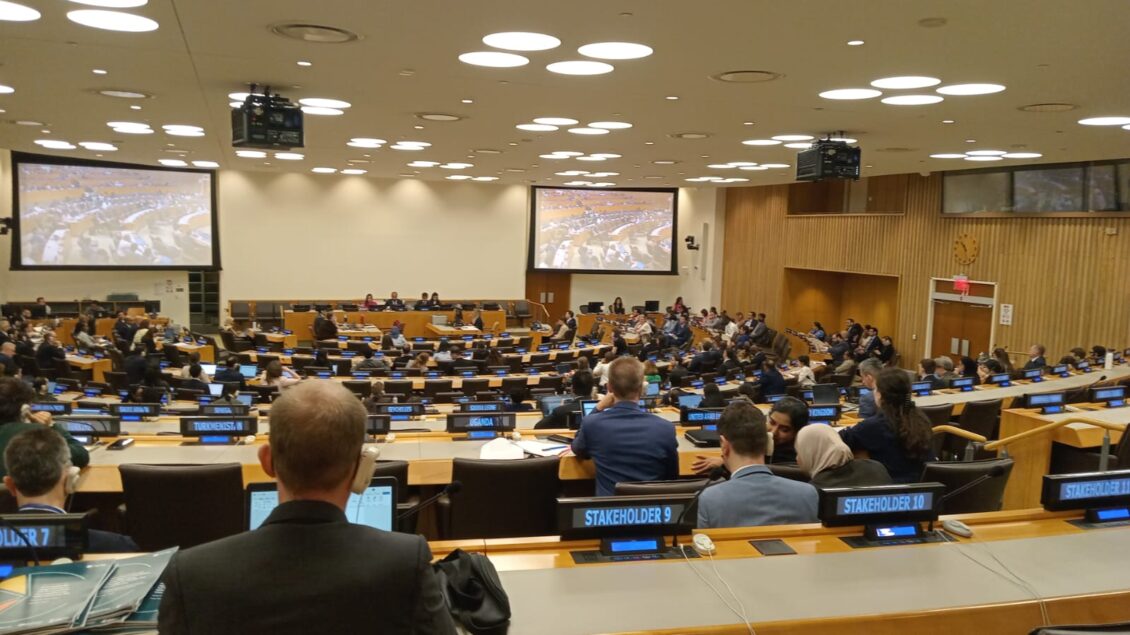Published by Latindadd here.
By Adrian Falco y Luis Moreno*
The United Nations Framework Convention on International Tax Cooperation held its first two weeks of negotiations at the UN headquarters in New York. This initiative, long demanded by the global tax justice movement, aims to establish a legally binding instrument to create “an inclusive, fair, transparent, efficient, equitable and effective international tax system for sustainable development.“
Building on the work produced by the three workstreams over the past few months, the Intergovernmental Negotiating Committee began discussing the contents of the framework convention and two early protocols agreed upon by the UN Member States: the first on the taxation of digital services and the second on dispute prevention and resolution.
Throughout the sessions, there was growing engagement from countries across all regions, with notable leadership from Latin America, Africa, and Asia, for systemic transformations to the current unfair global tax system. The negotiations aim to improve multinational taxation, reduce tax evasion, resolve disputes, and strengthen international cooperation. The sessions that took place at the UN headquarters will feed into the development of the first draft texts, to be reviewed in Nairobi, Kenya, during the next session November 10 – 21.
Debates among delegates were enriched by the active in-person participation of over 30 civil society organizations from around the world, who have been calling for over two decades for reform of the global tax system to curb tax evasion and avoidance that undermine countries’ ability to fund development policies and respond to external shocks.
According to the latest estimates from the Economic Commission for Latin America and the Caribbean (ECLAC), in 2023, tax evasion in the region amounted to USD 433 billion, or 6.7% of GDP. Of this, 4.6% was linked to evasion of corporate and personal income tax, while the remaining 2.1% related to VAT.
Maintaining Ambition
Over the two-week period, representatives of Red de Justicia Fiscal de América Latina y el Caribe (RJF-ALC) made interventions during the sessions to highlight the shared positions of the tax justice movement on corporate tax reform, dispute resolution, the inclusion of key development-related elements in the convention, and other structural aspects of the process. Civil society’s participation and a daily chronicle on the progress of negotiations were coordinated by the Global Alliance for Tax Justice and the Civil Society FfD Mechanism.
“This is a crucial stage to define and shape a robust Convention that supports true global tax cooperation, and in that regard, we urge that civil society voices not be silenced,” said Adrián Falco, coordinator of RJF-ALC and Tax Justice Lead at Latindadd, at the opening of negotiations.
Civil society also called on delegates to engage in inclusive and open dialogue with other areas of their governments beyond tax, such as those in development, environment, gender, human rights, and global governance.
“The Convention must include a commitment to ensuring that tax systems are fully aligned with the progressive realization of human rights, the reduction of inequality, and sustainable development. Specific references must be made to reducing inequality within and between countries, protecting the environment, advancing gender equality, and promoting progressive tax systems,” Falco emphasized.
Throughout the two weeks of negotiations, civil society reiterated the need to replace the current transfer pricing system and arm’s-length principle with a framework where corporations are taxed on their global profits, and taxing rights are allocated based on a system of formulary apportionment with unitary taxation.
Taxing Digital Services
During the UN sessions, countries began analysing mechanisms to address the growing challenges associated with taxing digital services. Discussions focused on how the economic activity of digital companies is often decoupled from physical presence in countries, rendering traditional tax models insufficient. As part of the debate, the concept of source-based taxation returned to the table—allowing digital companies to be taxed without requiring physical presence in the countries where revenue is generated.
While these discussions, which also covered examples of digital service taxes unilaterally introduced by various countries, were important, civil society stressed the need to go further by moving past the outdated transfer pricing system and arm’s-length principle.
Systemic Solutions to Prevent and Resolve Disputes
“The problems we face go far beyond what current dispute resolution tools can fix. We need to reform the existing corporate tax system, which is built on transfer pricing and the arm’s-length principle,” said Luis Moreno, RJF-ALC member and Chair of the GATJ Coordination Committee. “Transfer pricing is one of the greatest fictions of the 20th century—pretending that a multinational and its subsidiaries are independent entities. Arguably, this is the most expensive fiction in modern history,” Moreno stated during the UN Tax Convention sessions.
From the civil society perspective, superficial bandaids will not address the structural flaws that generate tax disputes. Despite the discussions during the sessions, the main barrier to effective dispute prevention and resolution is the complex system that governs corporate taxation: namely, transfer pricing rules and the arm’s-length principle. This framework prevents countries from effectively taxing corporate income and generates an excessive number of costly, time-consuming disputes.
The Road to Nairobi
Despite civil society’s demands, the negotiations will resume virtually behind closed doors over the coming weeks. The Intergovernmental Negotiating Committee will continue working to build consensus on the content of the Framework Convention and the two initial protocols. Full participation will resume during the in-person sessions scheduled to take place in Nairobi in November.
* Adrián Falco is an Argentine sociologist and Coordinator of the Tax Justice Programme at the Latin American and Caribbean Network for Economic, Social and Climate Justice – Latindadd.
* Luis Moreno is a Peruvian economist and Director of International Taxation at the Latin American and Caribbean Network for Economic, Social and Climate Justice – Latindadd.
